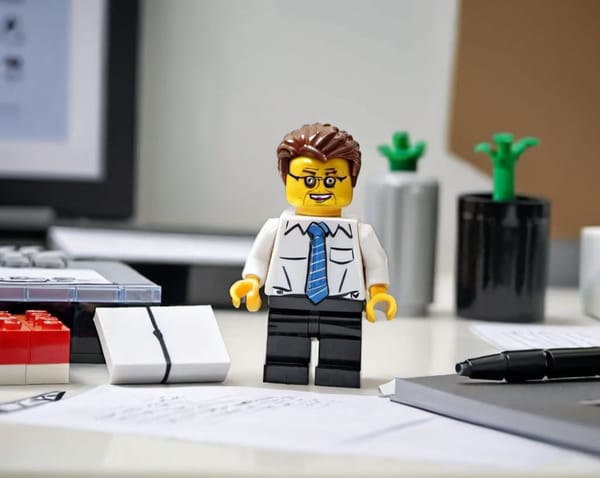Product Management Superpower: Asking Questions
Planned sessions with real people give rise to how important the ability to ask probing questions, and to extract maximum value from your face time. Take advantage of it.

The better part of two decades ago, I was brought into awareness of the concept of “Customer Visits”1 a method of uncovering the real needs and desires of customers, and it has been a bedrock of my approach to formal voice of the customer.
Years of formal voice of the customer visits, working with coaches, and the odd viewpoints that I learned from my physics education in university have prepared me to excel at asking ad hoc questions that uncover startling facts that really drive innovations.
While I prefer having the time to define a working set of discussion items (a set of generic jumping-off points for a structured meeting), that is not essential. Just last week, I was impromptu invited to a call with a participant in an early access trial of our new product, and it turns out that he is an instructor at a technical trade school in middle America. My boss and I are asking questions back and forth, then an idea hits me. What do his students “look” like? No, not age, gender, race, but more like their background, their expectations, and what sort of jobs will they get?
Being that I live (and have lived most of my life) in Silicon Valley, where you can’t swing a dead cat without hitting an IT or Software ‘expert’ level engineer, I realize that my horizon is pretty atypical compared to the rest of the country. Here was a chance to get a level-set of a normal slice of Americana, and I swung at it.
Turns out that that one question provided an amazing amount of very valuable feedback.
After the meeting was done, my boss commented that that one question was particularly useful. Furthermore, the team that led the research has now committed to inviting us into their future sessions.
Win - Win.
All because product managers are (or should be) gifted at asking questions. Sometimes, in meetings, I ask pointed, sharp questions, that elicit at times painful truths. Later people often comment to me that they never thought to ask that but were glad that I did.
There are tons of resources around continuous discovery, researching, creating and testing hypotheses, in the end, it is all about asking probing, insightful questions, and giving the people you are talking to enough space to answer them. I promise you they will tell you some amazing things.
Some free tips
- Ask open ended questions as much as possible. If the question you want to ask can be answered with a yes or no, then work on rephrasing the question to give the other party room to expand. This can be difficult for someone with an engineering background, as they often see the world in black and white, and this is one area that a less technical education is a huge benefit.
- Follow up on answers. Odds are that there are many directions a discussion can go from a question. This is why I try to always start with a “discussion guide” that lists a handful of questions, and that I hand to the person I am talking to in advance. The interesting discussions veer way off what I had intended, and that is OK. Really let the person you are talking to take the discussion wherever it goes.
- Record or invite someone to take notes. If you have to pause to take your own notes, that can interrupt the flow, and disrupt the conversation. Best is to be in person, and to have someone you brought with you to be the note taker. They can also nudge you to move on when you have plumbed the depths of a topic.
- Schedule time immediately afterwards to write down anything contemporaneous that you thought while asking the questions. Like within 30 minutes. If you are traveling, go to a coffee shop and WRITE IT DOWN. Trust me, the next day, those fleeting thoughts will be gone.
True story - every (and I do mean every) engineer I have invited to go to a customer visit, has told me that the questions I put on the discussion guide were insane, and that nobody would answer them. After the first session, they will gush at how much the customer or person we talked to told us.
All because you asked and listened.
Custom Visits: Building a Better Market Focus - Edward McQuarrie ↩




